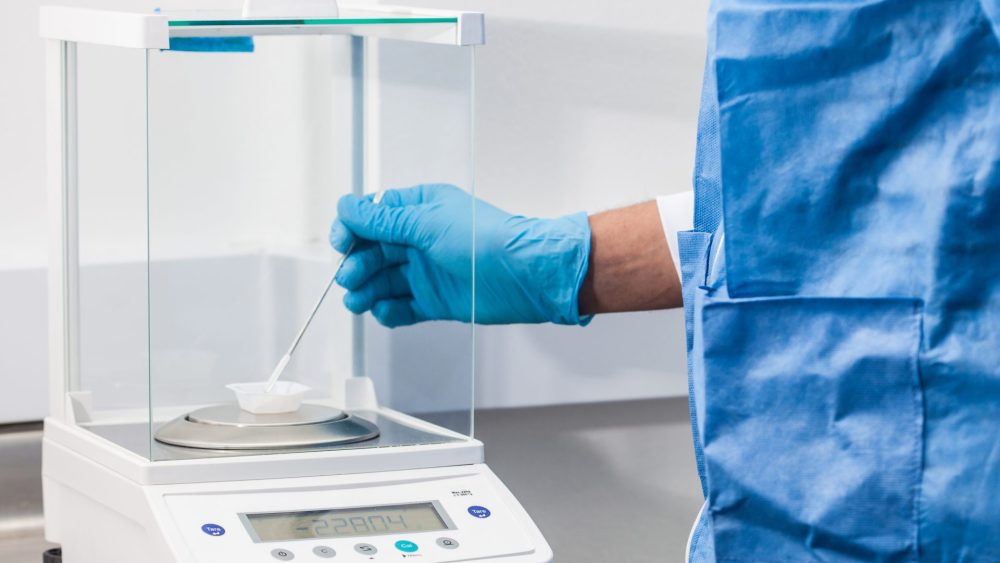There are many different types of laboratory balances available on the market, each with its own unique set of features and specifications. This can make it difficult to decide which balance is best for your needs. To help you make an informed decision, here’s a list of factors to consider when purchasing a laboratory balance.
The top laboratory balance considerations
Accuracy
Accuracy is the degree to which a balance measures what it is supposed to measure. A laboratory balance can be accurate if it consistently measures a known weight (like a calibration weight), or if it accurately determines the mass of a particular sample.
Some common causes of mismeasurement include worn or damaged load cells, warped or off-centre weighing pans, or damaged weighing cells due to excessive shocks.
Precision
A balance can be precise if it gives consistent readings when weighing something multiple times in a row. It’s possible for a balance to be accurate without being precise. Conversely, some balances are both very precise and very accurate at their stated calibration levels. Other balances might only be accurate within certain ranges or over certain weights or sizes of objects being weighed.
This is why it’s important to understand the requirements of your work, so you purchase the right type of balance. Typically, laboratory balances need a much greater level of precision than other types of balances.
Weighing capacity
The weighing capacity of a balance is an important consideration. This refers to how much weight it can support and the maximum weight that can be placed on the scale. The accuracy of a balance depends on its capacity, so it’s also good to know what kind of accuracy you’re getting with your new laboratory balance.
It really comes down to what you will be weighing. Laboratory balances usually have a smaller weighing capacity because the sample sizes are smaller. This allows them to be more precise, whereas larger balances can hold more, but may have less accuracy.
Speed and ease of use
The speed and ease of use of a balance are important considerations if you are using your lab equipment frequently. A scale that is too slow wastes time, and one that is difficult to use will make your work more frustrating.
If you have a large lab and need to weigh large amounts of material at once, consider purchasing a balance with multiple weighing pans so that all of the samples can be weighed at once rather than having to weigh each sample individually.
Smart weighing features and functions
Smart weighing is a feature that allows you to weigh and record data automatically. This can be used for research and development, quality control, production, inventory management and more. Many modern laboratory balances come with this connectivity, and with the right software and tools, you can enhance your lab and increase efficiency considerably.
Looking for the perfect laboratory balance?
NWI Group offers a wide range of laboratory balances for sale. As a NATA-accredited testing authority, we can also take care of your calibration and servicing. We’re the weighing experts, so if you need advice for your laboratory needs, we’d love to hear from you. Contact us today to find out more.






Comments are closed.